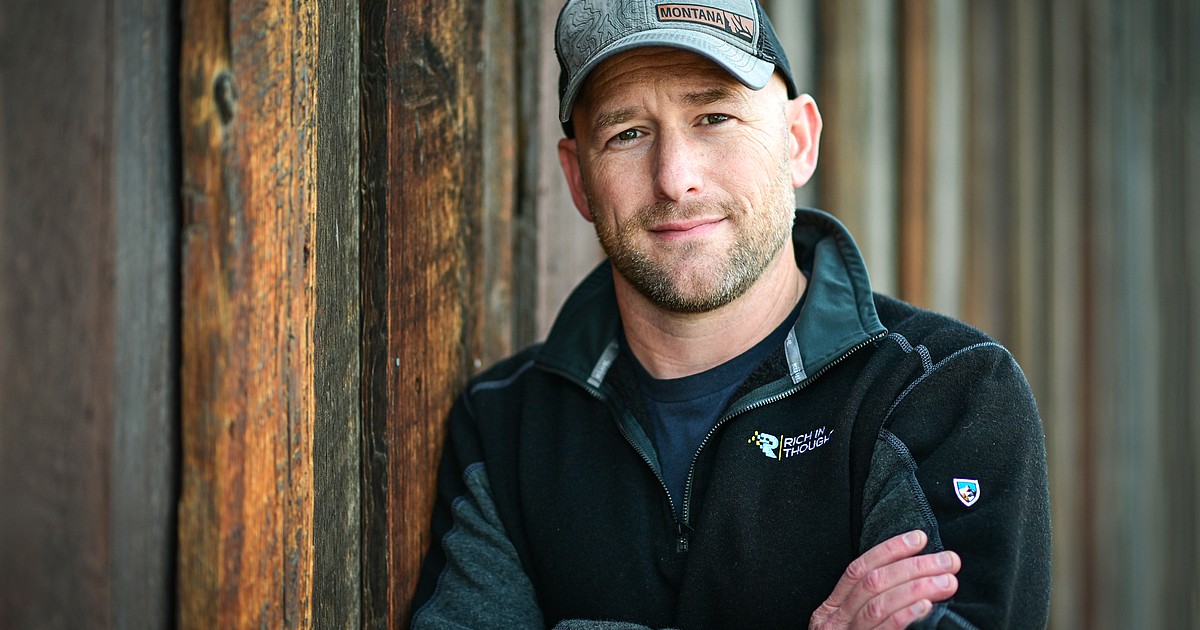Getting a job in an investment bank is, no hyperbole, probably the hardest thing you’ll ever do in your life.
Get Morning Coffee ☕ in your inbox. Sign up here.
If you’re trying to get an internship, Goldman Sachs accepts just 0.8% of applicants. If you’re trying to get a job there normally, it only accepts 0.3% of them. JPMorgan has similar figures. By comparison, the University of Oxford had an acceptance rate of 14% in 2024, and Harvard had an acceptance rate of 3.2%.
Getting an investment bank job is really, really competitive. The only thing more competitive is getting a job at Citadel, which has an acceptance rate of 0.4%, according to Business Insider.
If you want to get that job, you will need to work very hard, exhaust every opportunity you have, and really – genuinely – be a little bit lucky. These are all the options you have.
1. Get into banking by doing a “degree apprenticeship”
The earliest you can get a job in an investment bank is when you’re applying for university.
Degree apprenticeships – during which you’re employed by the bank while you’re studying – only exist in the UK, and they’re insanely competitive to get into: one program participant in 2023 told us that there were over 4,000 applicants to 28-degree apprenticeship roles at his bank last year, an acceptance rate of less than 0.7%. That’s lower than Goldman Sachs or JPMorgan’s “normal” internship acceptance rates.
As degree-apprenticeships are based in the UK, the banks that offer them are limited to those with large UK footprints. They include Barclays, HSBC, JPMorgan, Goldman Sachs, and Deutsche Bank.
It might be worth doing a degree internship though, even if you have to start preparing for a banking job at age 17. At the end of your four-year course, you have years of part-time experience, much better finances than your average university graduate, and a graduate offer to return to the firm as a full-time employee.
2. Get a banking internship as an undergraduate and convert it
This is the most typical way to get a job in an investment bank. Internships are supremely important (as you’ll find out the further you scroll down), and the summer internship is the big daddy of internships in every form.
Getting a summer internship as an undergraduate and receiving an offer at the end of it to join your employer full-time after you graduate is the most tried and test way to get a front-office job in a bank. So, most of your energy should be devoted to applying for these – right?
In the USA, yes. But in the UK, the pressure cooker begins before that, with first-year spring internships. These are week-long taster sessions in your first year of university that, hopefully, can lead to receiving an offer to join a bank for a second-year summer internship. They’re extremely important. Some banks offer similar ‘sophomore internships’ in the US.
3. Get a banking internship as a postgraduate and convert it
This is a complicated topic.
For one, doing a master’s degree still only gets you a summer analyst internship. You will be at the bottom of the bank’s ladder. Therefore, what you’re really doing is paying five figures to get an extra year or two of time as an undergraduate, essentially.
Additionally, not all master’s in finance degrees were made equal. Former careers coach Mark Ross told us that a lot of degrees are “ripping off candidates” and “need to be shut down”. Many graduates of these programs say that they feel like their employment prospects were misrepresented to them, and that they’re unhappy with the impact their masters degree had on their careers.
If you don’t want to do an expensive masters. Brian Landeros, a careers coach and former Morgan Stanley and Goldman Sachs intern says you can “buy time” by delaying your graduation.
That doesn’t mean failing exams or modules or whatever else, but delaying the actual graduation date. The reason for that is simple: banks require you to have a graduation date no later or earlier than a certain time period to apply to an opportunity. If you can delay your graduation date, you can apply for next year’s internships. That might be better (and cheaper) than doing a master’s degree.
4. Get a banking internship as an MBA and convert it
This used to be the gold standard of getting an investment banking job. Although the route is not as popular as it used to be, there are still opportunities to get on a summer associate program during your MBA, and converting that into an internship (as if you were an undergraduate student).
Wait, summer associate? Yes, that’s right. It’s also the big benefit of doing an MBA over just about any other internship route: you get to jump up the ladder a bit and start climbing a few years above others.
Because you usually need a few years’ work experience to do an MBA, don’t consider it a way to get on the ladder earlier in life – the biggest benefit is that you get to skip the abysmal work-life balance that analysts suffer.
Like master’s degrees, not all MBAs are made equal. Banks are just as picky with who they hire from MBA programs as they are from undergrad ones, and there’s very much a hierarchy of top business schools that they recruit from.
Another benefit to starting your banking career with an MBA is that associates are better paid than analysts. A top MBA such as Stanford’s, Columbia’s, or Chicago’s can lead to an investment banking job that pays up to $350k in starting salary (although the median is usually around $175k). That’s much higher than an analyst, who typically earns around $111k in their first year.
5. Get a banking internship as a PhD and convert it
More studying? Well, if you’re this far down the list, you’ve already missed undergraduate, postgraduate, and MBA opportunities. What’s another few years of studying to you? Besides, PhD holders are well-loved by banks, who itch for them to join their quantitative research teams.
Morgan Stanley, for example, is currently looking for a PhD researcher to join its derivative strats (sales & trading) team as a quant. Chase is currently looking for an AI machine learning researcher to join its data analytics team. Those are pretty typical uses for a PhD.
Other banks have more interesting uses for PhDs. JPMorgan’s quantum computing team, for example, is one of the best in the world (not just the industry), and is mostly a “very large team of PhDs,” in the words of quantum chief Marco Pistoia.
Not all quant-y positions requite PhDs, however. One quant researcher at Jane Street, the electronic trading firm par excellence (that pays $1.4m on average) have said last year that “the majority of researchers at Jane Street don’t have PhDs.”
6. Get a banking internship after you graduate
Okay, you might be starting to get desperate now. You should be: if you’ve done an undergraduate degree, a master’s degree, an MBA, and a PhD, congratulations: you’re the best-qualified person who still can’t get into the banking that is alive today.
However, two last options exists for you to get that all-important internship: graduate schemes and off-cycle internships. A graduate scheme without prior internship experience is pretty much impossible, but off-cycle internships are still an option: you could even do it in a bank’s “satellite office” in Milan, Paris, or Frankfurt. We talk more about off-cycle internships here.
7. Get a job in banking by joining the army
Admittedly a bit of an insane step to take for the sake of any internship, and probably one your mother would disapprove of, but there are plenty of examples of banks having specific outreach schemes for military veterans that you can apply to.
Most opportunities for veterans are in the US. JPMorgan, Morgan Stanley, and Goldman Sachs are all known to have special programs for military personnel transitioning into the private sector, as does Barclays (in the USA).
One of the most famous veterans in finance recently was Leo Lukenas. A former green beret and Bank of America associate, Lukenas died of a “acute coronary artery thrombus,” during a period in which he was allegedly working 120-hour weeks. His twin brother, Les Lukenas, who was also a green beret, was hired by Goldman Sachs after his brother’s passing.
8. Start the CFA program
A bit of a guerrilla option given the workload, but if you’re already in an established career, doing at least the CFA Level I will help show recruiters and banks that you’re serious about finance, as well as teach you some of the basic concepts that should apply directly to your future work.
Doing a CFA is particularly useful for international students or professionals seeking to move into a finance career, due to its perceived value to Western institutions.
The downside (or upside, to an employer) of the CFA is that you do actually have to work for it – it is more than possible to fail any of the three stages. CFA Institute indicates that the pass rates for Levels I, II, and III are around 44%, 48%, and 49% respectively.
9. Get a job in banking by coming in through accounting
Getting into banking via accounting is a more popular option in Europe than in the USA, and also takes a very long time, courtesy of all those years of extra studying you also have to do for the ACA/ACCA/etc. Accountants also tend to be a bit of a desperate pick for banks. They’re usually brought in when dealmaking is booming to work on what seems like an endless supply of business. Alas, dealmaking is not exactly booming at the moment – not the way it was in 2021, at least.
The most relevant example of an accountant who succeeded in banking is probably Julian Salisbury, former chief investment officer of Goldman Sachs Asset Management (and now partner and co-CIO of asset management firm Sixth Street), who joined the bank from KPMG.
10. Get a job in banking by becoming a lawyer
Law isn’t as popular an entry point as it used to be, but it definitely has at least one significant previous example of success – former Goldman Sachs CEO Lloyds Blankfein, who left law to join a trading firm that was a subsidiary of Goldman’s as a trader. The 80s were a crazy time compared to now, though.
11. Get a job in banking through consulting
Management consulting is probably the best-positioned way to transition from a different industry into banking. Bankers and consultants tend to be very similar characters in terms of education, work ethics, and so on. Your field of expertise as a consultant also matters – transitioning from regulatory implementation to compliance, for instance, is quite straightforward.
There’s also a veritable hall of fame for people that reached the highest levels of banking despite their backgrounds in consulting. The former CEOs of Credit Suisse, UBS, Morgan Stanley, Standard Chartered, and Commerzbank were all ex-McKinsey partners at one point: the present CEO of Citi, Jane Fraser, was also a partner at the firm earlier in her career.
12. Get a job in equity research through something entirely unrelated
Equity research isn’t strictly investment banking, but our 2025 Compensation & Lifestyle report showed that they’re doing very well for themselves. Given their more relaxed work schedules, the average bank researcher earned more money per hour worked than the average investment banker.
Breaking into equity research is often done by someone already in the industry they wish to cover. For example, going from a medical career into covering healthcare equities is a tale as old as time, for instance.
13. Get a job in banking by sending an email
Cold emails are definitely not what they used to be. A running joke these days is that [baby] boomers like to recommend youngsters walk into a potential workplace, ask to speak to the owner, “make eye contact and give a firm handshake,” and boom, you have a job. Well, that doesn’t quite do it these days (not for investment banking, at least). And neither does cold emailing.
That being said, if you’re this far down the list, what do you have to lose but your pride? And besides, a low chance is not no chance.
14. Get a job in banking because your uncle has one
If you can benefit from nepotism, you don’t need our advice on how to dabble in it. And we don’t encourage such a thing, obviously.
Nepotism has always been prevalent in finance, despite rather consistent efforts to eradicate it over the years. One person in investment management told us earlier this year that “every firm” which he had worked us was nepotistic to some degree, based on both the relatives of key executives and key clients.
Brian Landeros noted that, when he was doing his internships, he was surrounded by “rich Latin Americans, a member of the British nobility and the son of Kenyan royalty.” That’s not an atypical intern class, believe it or not. Landeros generally recommends avoiding discussing your socioeconomic background, unless you’re from the same privilige as others.
Have a confidential story, tip, or comment you’d like to share? Contact: +44 7537 182250 (SMS, WhatsApp or voicemail). Telegram: @SarahButcher. Click here to fill in our anonymous form, or email [email protected]. Signal also available.
Bear with us if you leave a comment at the bottom of this article: all our comments are moderated by human beings. Sometimes these humans might be asleep, or away from their desks, so it may take a while for your comment to appear. Eventually it will – unless it’s offensive or libelous (in which case it won’t.)
link







More Stories
Korea steps up investment banking by tapping first IMA operators
PRIVATE SAAS COMPANY SURVEY REVEALS AI-DRIVEN TRANSFORMATION AND SUSTAINED OPERATIONAL EXCELLENCE
Anthropic’s $50B Investment in AI Infrastructure: What Does It Mean for Crypto Banking?